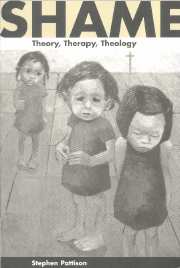Book contents
- Frontmatter
- Contents
- Preface
- Introduction
- PART I APPROACHING SHAME
- PART II ENCOUNTERING SHAME
- PART III SHAME AND CHRISTIANITY
- Introduction: bringing Christianity into the picture
- 8 Modern Christian responses to shame
- 9 Shame in Christianity
- 10 Towards more adequate approaches to shame
- Epilogue
- Bibliography
- Index
9 - Shame in Christianity
Published online by Cambridge University Press: 05 June 2012
- Frontmatter
- Contents
- Preface
- Introduction
- PART I APPROACHING SHAME
- PART II ENCOUNTERING SHAME
- PART III SHAME AND CHRISTIANITY
- Introduction: bringing Christianity into the picture
- 8 Modern Christian responses to shame
- 9 Shame in Christianity
- 10 Towards more adequate approaches to shame
- Epilogue
- Bibliography
- Index
Summary
Shame is unquestionably a condition that society shamelessly manipulates for its own ends, and it disseminates the spores of the abject to as many locations as possible to guarantee greater control over the lives of its constituents.
(Hans 1991: 137)You have taught me to worship a god who is like you, who shares your thinking exactly, who is going to slap me one if I don't straighten out fast. I am very uneasy every Sunday, which is cloudy and deathly still, and filled with silent accusing whispers.
(Keillor 1985: 254)In the last chapter, I suggested that contemporary Christian responses to shame, especially chronic shame, have been limited and inadequate. Here I propose to explore some of the factors intrinsic to Christian ideology and practice that may actually produce and exploit shame. My working hypothesis is that Christianity, like other social institutions, engenders and promotes shame, often to enhance order and control. Shame can be used as a very effective means of manipulating people into obedience and compliance in the interests of the powerful who identify those interests with the will of God.
The ambivalent relationship between Christianity and dysfunctional shame
The relationship between shame and Christian thought and practice is complex and ambivalent, as is the relationship between Christianity and human well-being generally (Batson et al. 1993). Christianity can create, exploit and deny shame in groups and individuals. However, it can also diminish and alleviate shame, enhancing worth, efficacy and esteem.
I possess a series of letters from self-identified shamed people. For some of them, Christianity as they experienced it in early life helped to create a sense of shame and oppression.
- Type
- Chapter
- Information
- ShameTheory, Therapy, Theology, pp. 229 - 274Publisher: Cambridge University PressPrint publication year: 2000
- 1
- Cited by



